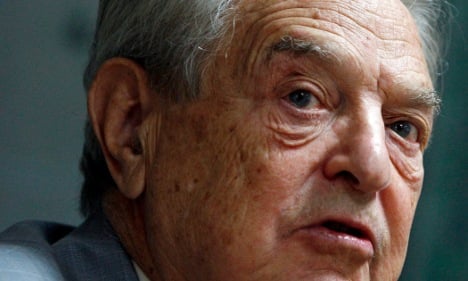“It was the German indecision that intensified the Greece crisis and led to the contagion that has transformed it into an existential crisis for Europe,” Soros wrote in a guest commentary for the business daily Handelsblatt on Friday.
Soros, who has long criticised Europe’s handling of the crisis, called for the introduction of jointly backed eurobonds – a call that has been made by many economists but resisted by Germany.
He wrote that it had been a mistake to try to back up individual countries such as Greece via bailouts rather than strengthen the European Union as a whole. Germany now had to take the lead, he added.
“Otherwise the euro will collapse.”
The current system of rescue packages for individual counties such as Greece was unsustainable. It meant Italy and Spain had to pay higher interest for their state debt than they were receiving from Greece for the emergency credit they supplied.
Merkel’s policy of small steps was too slow, he said.
Merkel has come under fire from several quarters for staying on holiday even as the stock markets gyrated wildly and deep concern emerged over France’s creditworthiness.
“Stockmarket tremors, eurodrama: why is the Chancellor silent?” asked daily Bild this week.
Merkel will meet on Tuesday with French President Nicolas Sarkozy in Paris to hammer out a new plan to tackle the euro crisis.
DPA/The Local/djw



 Please whitelist us to continue reading.
Please whitelist us to continue reading.
Member comments